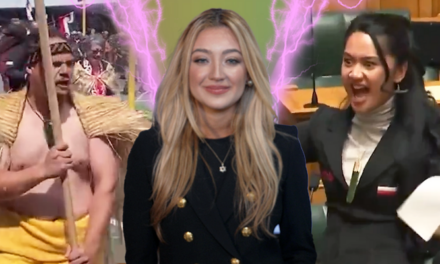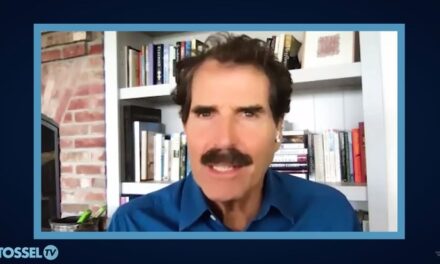We support our Publishers and Content Creators. You can view this story on their website by CLICKING HERE.
On Friday, in the run up to trial Judge William Scott Henry of Florida’s 14th Judicial Circuit Court handed Navy veteran and Plaintiff Zachary Young several legal victories in a pair of orders exclusively obtained by NewsBusters. Among them were affirmations that punitive damages would still be on the table for a jury to potentially award Young, CNN’s “retraction” of the story wasn’t good enough, Young’s expert witnesses would remain as part of his case, Young did not take money from the Afghans he was helping to evacuate, and he did nothing illegal.
Describing CNN’s intentions to get punitive damages off the table, Judge Henry wrote in his summary judgement order: “In its motions, Defendant now asks this Court for assistance to evacuate it from this lawsuit and from the potential for punitive damages.”
“Defendant’s Motion for Summary Judgment is denied as to Plaintiff, Zachary Young, and he shall be allowed to proceed with his claim for punitive damages,” Judge Henry ordered.
And a key part to being able to receive a punitive damage reward is whether the alleged defamer acted with “actual malice.” And according to Judge Henry, “There exists an issue of material fact as to whether Defendant published the Pieces with actual malice. Sufficient evidence exists upon which a reasonable jury could find with convincing clarity that Defendant acted with actual malice.” He found the same was true for “express malice.”
HAPPENING NOW: CNN defamation suit hearing https://t.co/dylHDtOLMo
— Nicholas Fondacaro (@NickFondacaro) December 5, 2024
CNN did get a minor victory in that Young’s company, Nemex Enterprises was essentially removed from being considered for damages since only Young was mentioned directly in the offending CNN report, not his company. As the Judge put it, “there is no record evidence to show that the Pieces were “of and concerning” Nemex or that an average person could reasonably have concluded that Nemex was implicated.”
As for CNN’s retractions, they were ruled inadequate. While Judge Henry noted that a retraction was ran on the offending show, The Lead with Jake Tapper, “This retraction/correction was not made during the other television shows in which the Segment aired” and “No retraction, correction or apology was posted on any online article or with any social media posting.”
He also pointed out that, “Defendant’s representatives referred to the statement made on the Jake Tapper show as a correction rather than a retraction.”
According to the document, Florida law dictates that retractions for possible defamatory material must be done as close as possible to how they were originally distributed. But the order found that CNN failed to do that in some cases, opening themselves to liability:
There exists an issue of material fact as to whether Defendant provided a “full and fair” retraction as to the TV segment such that Defendant’s affirmative defense #29 is applicable to this portion of Young’s claims. However, the Court finds that Defendant did not publish a retraction as contemplated by the statute with regard to the Tweets and online article, and therefore summary judgment in Young’s favor on this affirmative defense would be applicable to these publications.
On Young’s activities in helping to evacuate women from Afghanistan, the order noted that an “important part of the Court’s prior ruling was that Young did not do anything criminal or illegal.” Further, “The Court finds that Young did not take money from Afghans.”
CNN defamation suit hearing – 11/25/2024 – Pre-Trial Conference https://t.co/Hlu62tloOR
— Nicholas Fondacaro (@NickFondacaro) November 25, 2024
As NewsBusters previously reported, CNN wanted to the court to kick expert witness General James V, Young (no relation to the Plaintiff) off the case because, according to them, he was just too good. Judge Henry’s second order put an end to that effort. He found that General Young’s testimony would be helpful to a jury in order to understand what conditions were like on the ground in Afghanistan:
General Young was retained to render opinions regarding the circumstances and evacuations occurring in Afghanistan and Young’s employability after the Pieces were published. While certainly the subject of news reporting, what exactly was occurring on the ground in Afghanistan and what specifically was necessary to perform evacuations are not things within the common knowledge of jurors. This information, along with Young’s employability, are issues relevant to those being presented at trial.
Young would also be allowed to keep his economic damages expert witness, Richard Bolko. “Mr. Bolko was retained to render an opinion regarding Plaintiffs’ damages. These damages are certainly an issue to be presented at trial, and therefore any such opinion would be relevant,” Judge Henry wrote.
Adding: “In reaching his conclusions, Mr. Bolko examined past income documentation, performed a projection of this income into the future, and discounted the calculation to present value. This is the standard method for calculating future lost income or damages. Therefore, the method utilized by Mr. Bolko is sufficiently reliable.”
CNN also scored a loss in their effort to have the court label Young a “limited public figure” as opposed to a private individual, arguing that he inserted himself into a public controversy by trying to rescue women from Afghanistan. But the court didn’t agree.
“Based on the foregoing, the Court determines as a matter of law that Plaintiffs should be considered private individuals for purposes of their defamation claims as opposed to limited public figures,” the order said. And “as a matter of law,” the court found that “Young and Nemex are private individuals.”
These orders set the stage for the trial, which is slated to begin on January 6, 2025.

 Conservative
Conservative  Search
Search Trending
Trending Current News
Current News 





